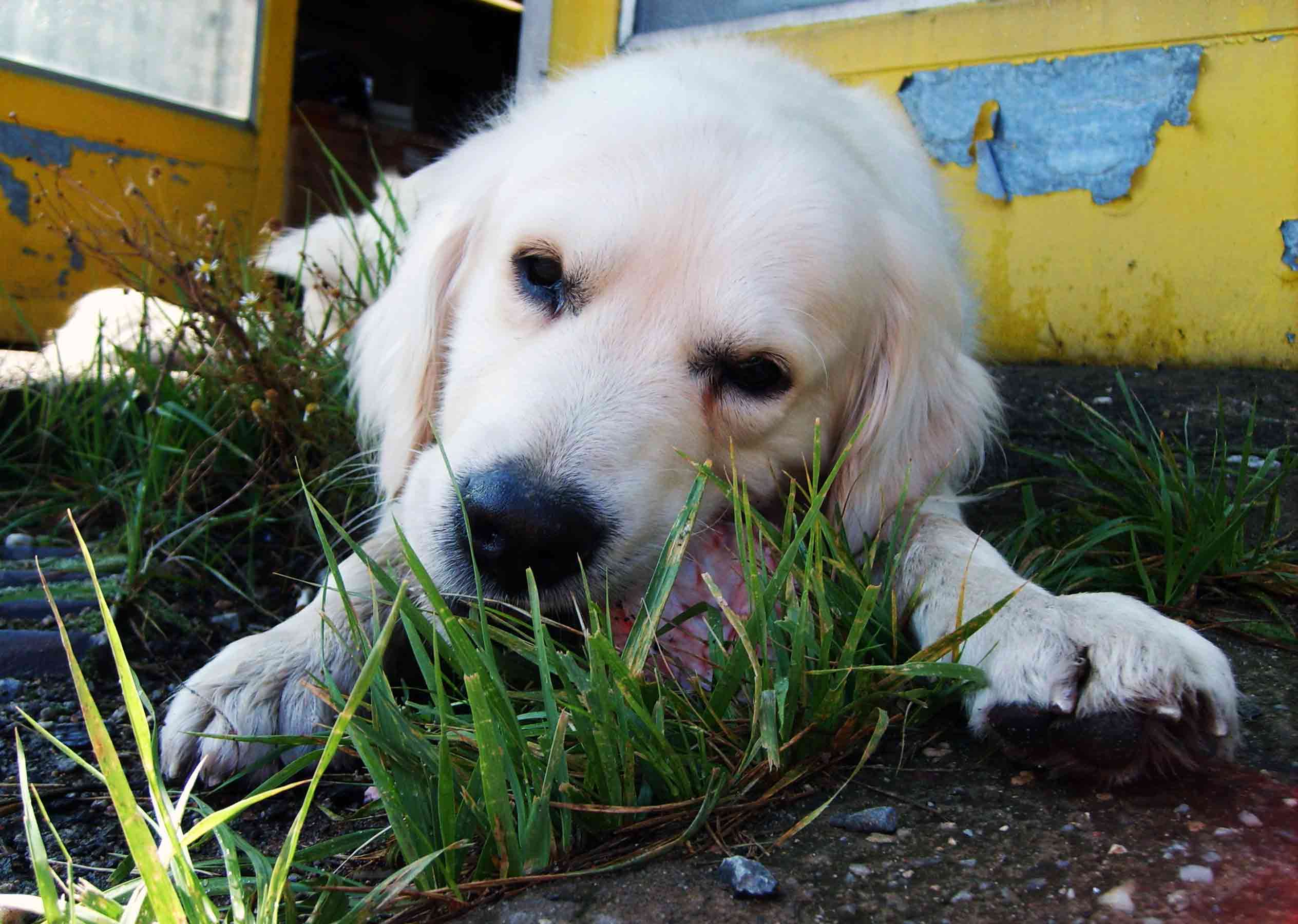
Why do dogs eat grass? There are so many theories about this; everyone knows why dogs eat grass. But have you ever wondered if any of those ideas were true? If you’ve ever been curious about the truth behind why dogs eat grass, then you’ll find the answers in this article enlightening, even if they are surprising! Just keep reading to find out the truth behind why dogs eat grass!
The idea of your dog running around the yard and stopping to eat some grass might not seem like much of a cause for concern at first glance, but it’s pretty telling about your pet’s health.
Some dogs have health conditions that cause them to eat grass frequently, so understanding why your dog might be eating grass can help you make sure they don’t have any underlying medical problems you should be aware of.
Here are 10 reasons your dog might be eating grass and what it could mean about their health and happiness.
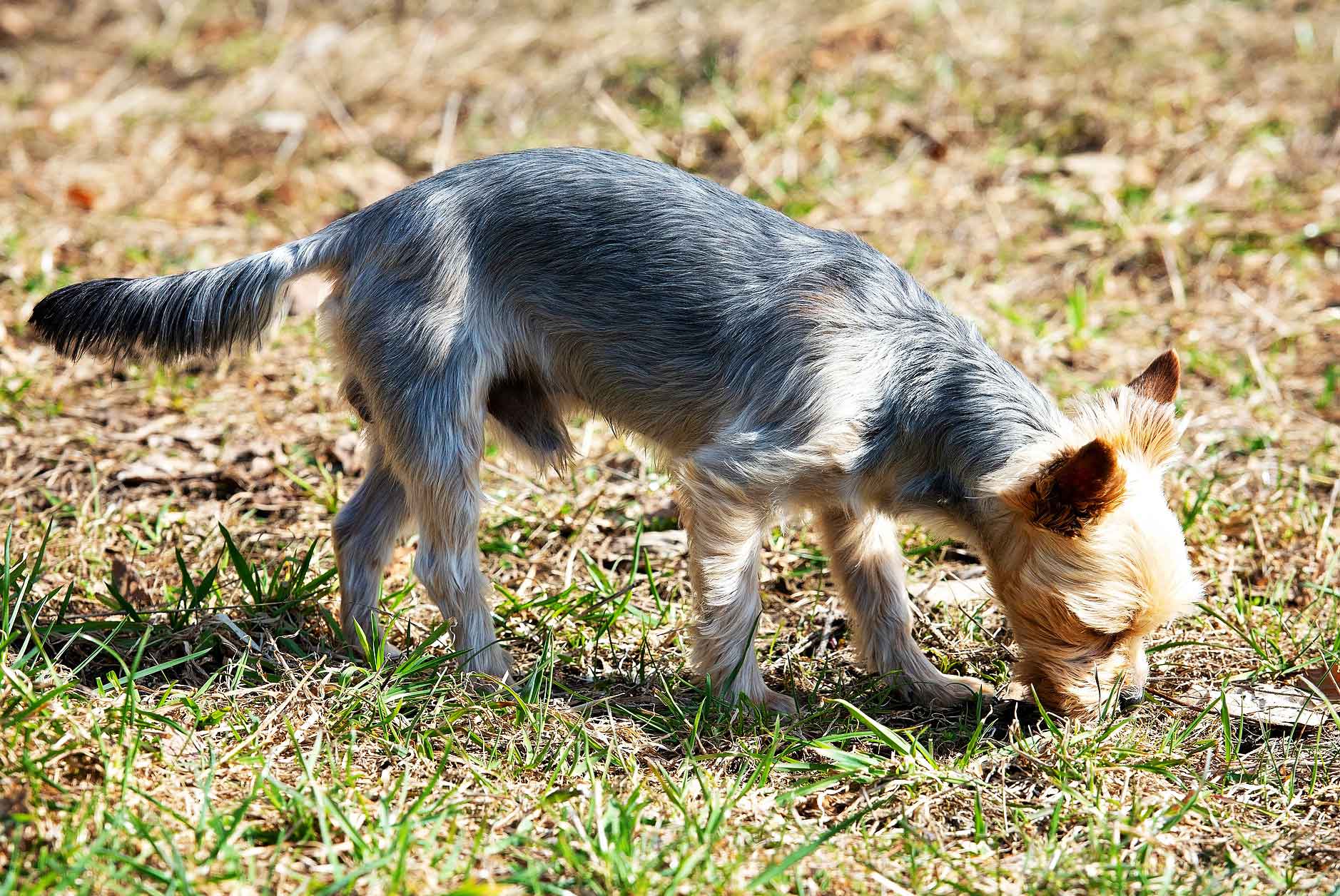
1) Why Dogs Eat Grass
Not all dogs eat grass, and even among those that do, some will eat it more often than others. There are a variety of possible explanations for why dogs eat grass, including illness, digestive issues, and nutritional deficiencies.
Regardless of why your dog is eating blades of greenery, he’s likely not going to die from eating it — most likely, he’ll be fine in due time. If you notice that his appetite changes or if he develops diarrhea after munching on some green stuff, it’s a good idea to see a vet.
The upside is that many veterinarians will offer free office visits for new pet owners to attract future clients; any vet visit is better than none if something does go wrong!
2) Dogs Eat Grass When They Are Dehydrated
Some dogs like to eat grass because it helps them hydrate. Grass has high water content, so if you think of your dog as a giant furnace that needs water to function, then you can understand why they’d want to eat plants full of water.
Some other animals do things similar to drinking by consuming something with a high water content – birds, for example, drink by sucking up water droplets from wet ground. If you have dogs in an area where they’re not getting enough potable (drinkable) water and find their sources of drinking fluid, that could be why dogs are eating grass.
3) The Plant Toxins in Grass Can Make Dogs Sick
If your dog seems to have an aversion to food, it could have something to do with a distaste for his food. Grass contains certain substances that can make a dog sick if it consumes too much.
If you notice him chowing down on some greenery, don’t panic. Some dogs eat grass simply because they like it—but you should always note any strange behavior and make sure he doesn’t overeat.
Give him some water or a different treat, and try taking steps to deter him from eating more grass next time. With these 10 tips in mind, you’ll know how to stop a dog from eating grass once and for all!
4) Dogs Eat Grass Because They Are Hungry
While we humans tend to go out and grab a snack whenever we feel hungry, dogs are often different. They are much more likely to roam around looking for food than going into the pantry and eating something.
If you’ve ever given your dog a treat right before bed and it has immediately run off in search of something else to eat, you may have figured out why dogs eat grass—because they didn’t get enough calories at their last meal.
If a healthy adult or puppy has been eyeing that patch of grass in your yard or along a sidewalk, it is probably not because they want to make themselves sick; instead, there isn’t enough food at home.
5) Indigestible Foods Act Like Weeds in the Body
Just like in a backyard, when weeds are growing in our bodies, it’s going to cause us trouble. We need to address these weeds to live in a clean environment and feel our best.
One particularly nasty weed that grows inside all of us can wreak havoc on our well-being – Amylopectin A. Learn about why dogs eat grass and discover more about amylopectin A here. (400 words)
6) Some Commonly Eaten Plants Can Be Poisonous to Dogs
If you’re an avid gardener, consider that many plants are poisonous to dogs. If you suspect that a particular plant may have caused harm to your pet, call poison control at (800) 222-1222. While there is not much literature on dog-grass toxicity, some of these plants have been known to cause vomiting and diarrhea due to their ingestion.
It is also possible for dogs to develop stomach ulcers and tumors due to ingesting various plants; it is unknown if any types of grass can cause those conditions.
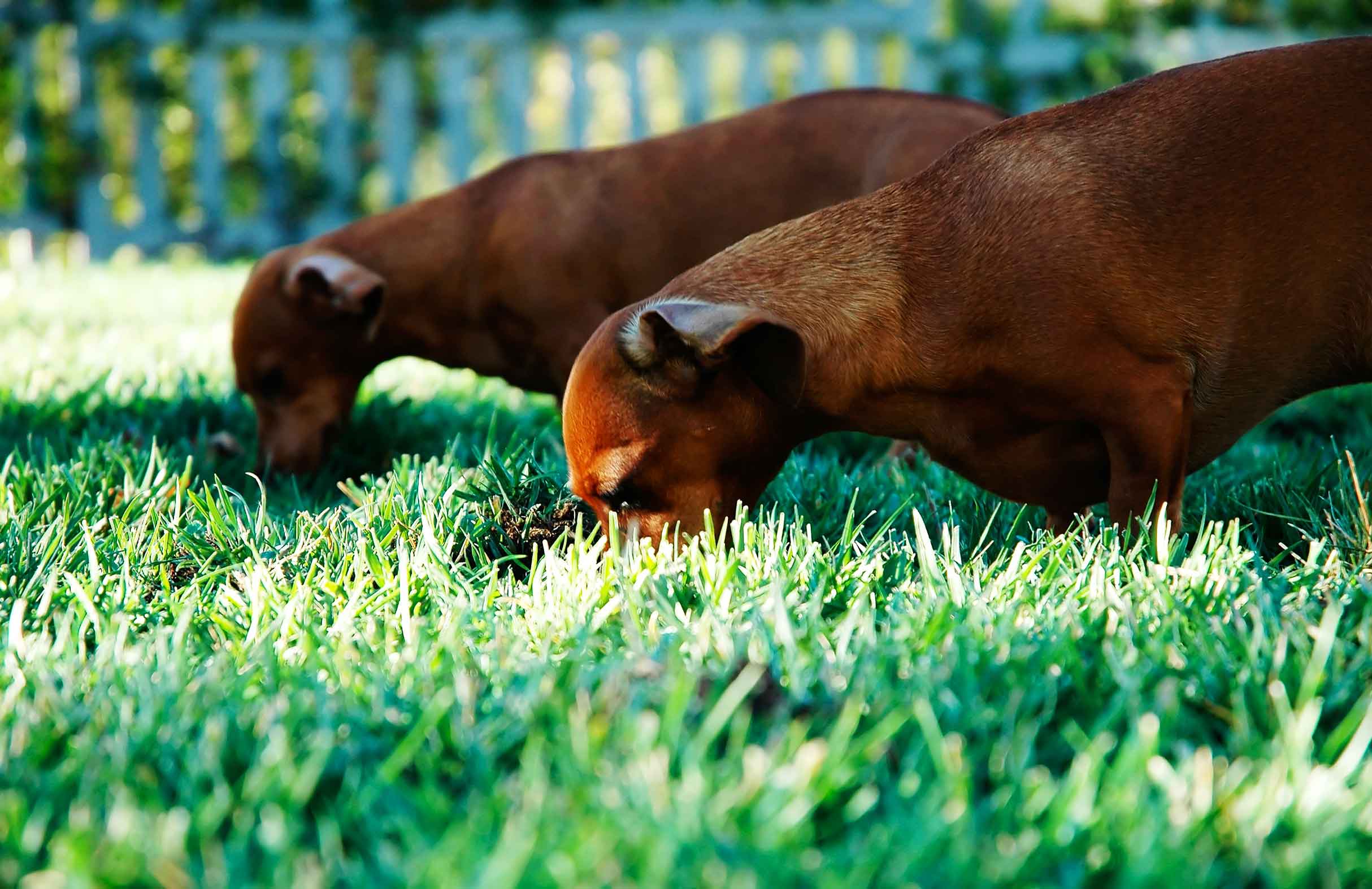
7) Vitamin Deficiencies
Dogs can become deficient in vitamins, just like humans. For example, a lack of Vitamin B1 (thiamine) can lead to anorexia (disinterest in food).
Thiamine is found in whole grains and beans and is usually added to processed pet foods. Dogs who are kept indoors or fed strictly commercial pet food diets could potentially develop thiamine deficiency, but it’s rare.
8) Fussy Eaters
Perhaps you’ve heard that dogs eat grass because of a nutritional deficiency. This isn’t exactly true. Dogs do eat a variety of plants and vegetables in addition to their regular diet, but not because they need those additional nutrients. Some researchers believe dogs crave different textures—soft and succulent like raw meat versus hard and crunchy like corn cobs—or that they enjoy chewing on things, even when there are no calories in it for them.
A more common explanation is that Fido eats grass because he likes to, or at least because he thinks he should! Does your vet say Fido is growing just fine without any added greenery in his diet?
9) There Is Something Else Wrong With Them That They Are Trying To Tell You About
Unfortunately, it’s not always clear what that is. Eating grass may be a sign of an underlying illness or condition, or maybe they just haven’t had their breakfast yet.
Any way you slice it, bringing your dog to a vet is worth it if they start gobbling up blades of greenery. Sometimes dogs eat grass because they have allergies or an upset stomach and don’t know how else to tell you something is wrong with them.
If a person had an upset stomach for days on end without knowing what was wrong, would they still keep downing spoonfuls of peanut butter? Probably not—so it isn’t too surprising that dogs will try to do whatever they can to make themselves feel better when they are feeling ill.
10) Many Other Reasons
There are many other reasons dogs eat grass, including nutrient deficiencies and dietary needs, but sometimes dogs like to chow down on it. There’s even an official name for it: lawnmower syndrome. Determining what’s causing your pooch to scarf down some greens is simple—look at their other habits and ask yourself if something about them has changed.
Are they drinking more water? Getting less exercise? Itching more than usual? Or anything else that seems out of place? If so, take a closer look at their diet and see if you can make any changes to help nip lawnmower syndrome in the bud. Remember, though—dogs can’t tell us what they’re feeling or what they need!
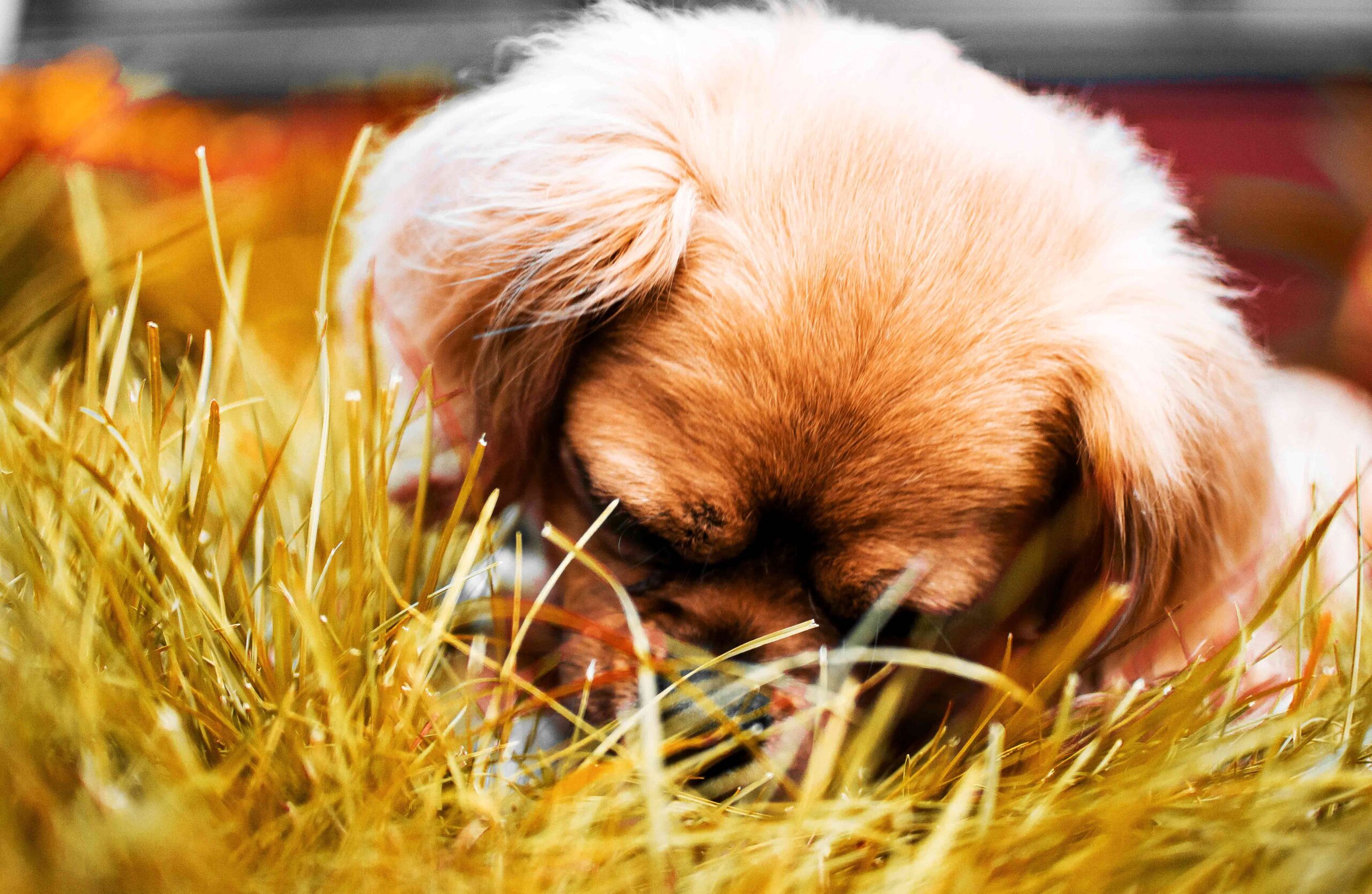
The Truth Behind Why Dogs Eat Grass
Are there nutritional benefits to dogs eating grass?
The truth is that dogs eat grass for various reasons, some of which are nutritional. Specifically, chewing on grass (also known as grass-eating) helps your dog digest food and absorb nutrients in his body.
It’s also a beneficial activity that can soothe your dog’s stomach or settle his nerves. If you have questions about why dogs eat grass and what it means, check out our comprehensive guide to why dogs eat grass below!
Why do some dogs eat grass?
It turns out it’s just like humans eating vegetables. Dogs eat grass because they want to. Plain and simple. Many people believe that dogs will eat grass as a substitute for something else, but that’s not always true.
Sometimes dogs will eat grass if their stomach is upset, but some breeds of dogs enjoy consuming fresh green grass in its entirety.
Your best bet is to talk to your vet about whether or not you should be concerned if your dog starts chewing on his favorite blade of grass – though it’s probably nothing to worry about!
Do dogs need to eat grass?
Most dogs don’t eat grass for nutritional reasons; instead, it is a form of self-soothing. Similar to people chewing their nails orbiting their cuticles when they’re nervous, dogs will eat grass as a way to soothe themselves in times of stress.
This is expected behavior that you can encourage by placing a few blades of grass inside your dog’s bed for him to enjoy during anxious moments. Make sure your dog doesn’t have access to toxic plants, and make sure he drinks plenty of water on days when he eats different grass.
What do dogs get from eating grass?
Many dog owners worry when they see their dogs munching on grass. What’s up with that? Are they trying to make themselves throw up? Could eating grass be beneficial for my dog?
Can eat grass cause health problems for my pup? These are just a few of the questions that go through our minds, especially if we’ve never really seen our dog eat grass before. Here’s what it means—and what you should do about it.
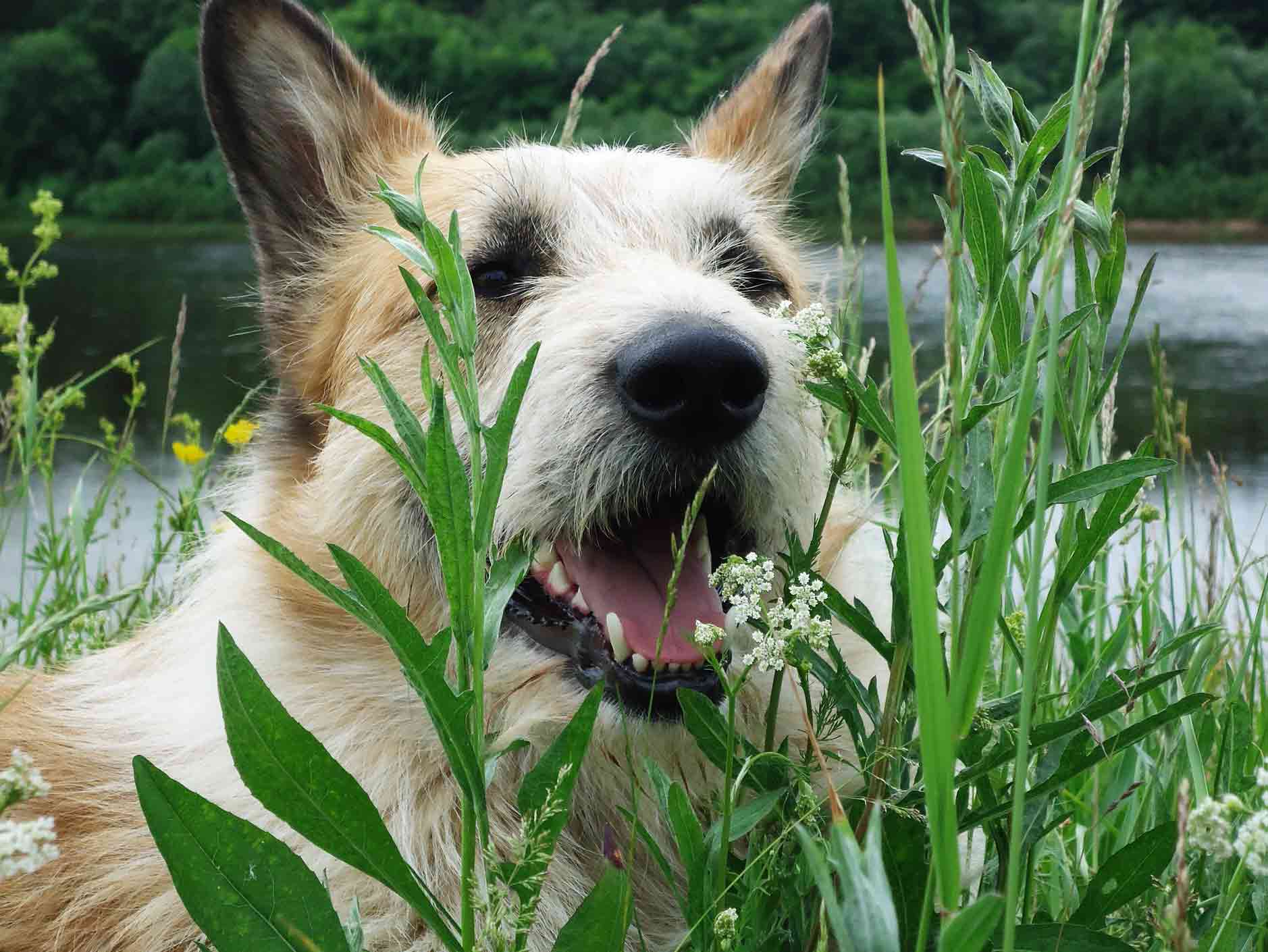
Reasons why dogs might be eating grass
Perhaps, if you’ve been wondering why your dog might be eating grass, it’s because he’s bored. Or maybe your pup is picky about what he eats and is craving some greens.
Either way, eating grass isn’t usually a big deal (unless underlying medical issues). But if you can’t figure out why your dog is munching on greenery, ask your vet to make sure he’s not just trying to get back at you for forgetting his breakfast one morning. Below are some of the most common reasons dogs might eat grass
Could your dog have worms from eating grass?
While there are several ways to determine if your dog has worms, one of the most accessible and accurate methods is to check out their poop. Worms typically appear in stool as thin white or yellowish segments, but these segments may also be dark-colored (the color depends on what kind of worm you’re dealing with).
These thin worm segments tend to float on top of the water, too, which means that you should also check your pup’s droppings for clumps that don’t break apart easily when submerged. Just keep in mind that a negative fecal exam result doesn’t necessarily mean no worms — it just means you haven’t seen any yet.
What should you do if your dog is overeating grass?
Every dog owner will likely run into a grass-eating problem sooner or later. While dogs are entirely normal to eat grass, there is something more serious to worry about. So what should you do if your dog is overeating grass? Let’s find out! Read on to learn why dogs eat grass and what you can do about it.
How can you stop your dog from eating grass?
One of the more unusual habits many dogs have is a taste for grass. Most dogs will eat grass in small amounts and occasionally, but some eat it too often.
When should you be concerned? If your dog doesn’t want to stop eating grass—and there are other symptoms—he could have an underlying health problem that needs to be addressed. Here’s what you need to know about your dog’s lawn-munching habit and how to deal with it.

